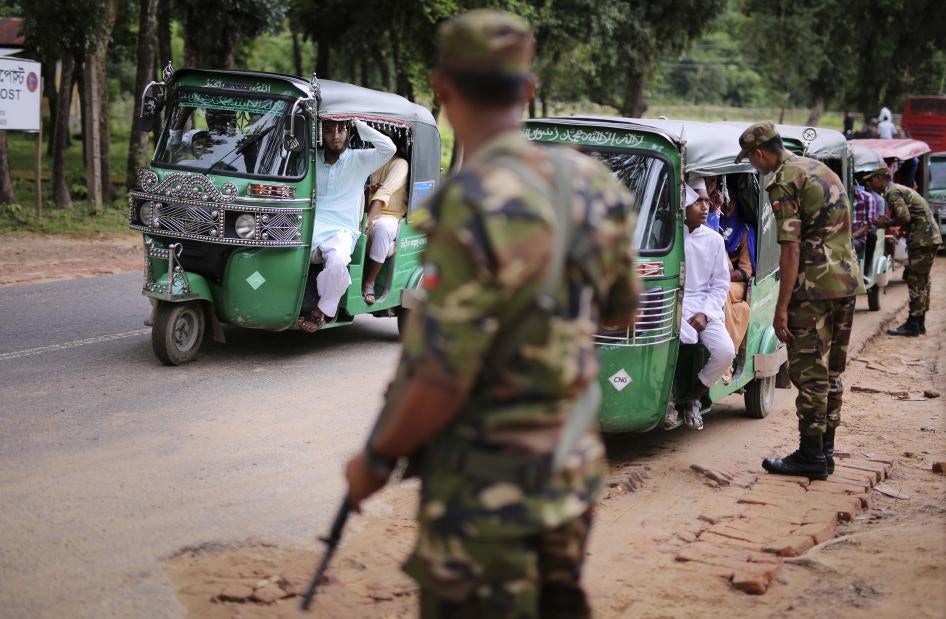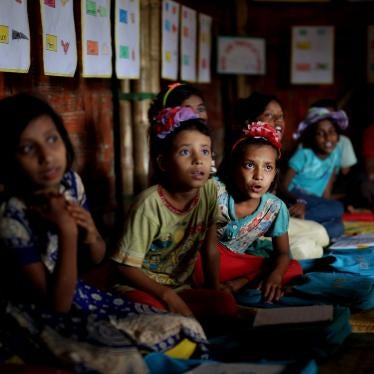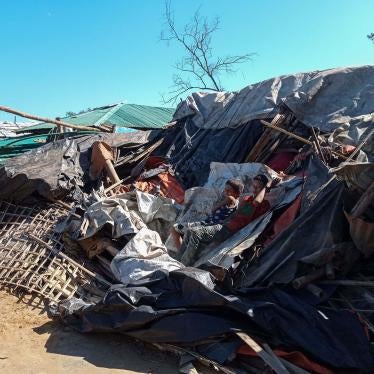On May 7, a 62-year-old Rohingya refugee was returning to her shelter in Kutupalong camp after collecting food rations when she was stopped at a checkpoint with other Rohingya by officers from Bangladesh’s Armed Police Battalion, or APBn, who refused to let them through. “The police officers suddenly became angry and started beating us with bamboo sticks.” She remembers falling. “Some people were hurt. I injured my waist. I was finally able to flee but lost my rations and ID.”
Human Rights Watch spoke with five Rohingya refugees who described being beaten by APBn officers and other officials at camp checkpoints over the past few days.
In two camps, Bangladesh authorities have introduced a draconian permission application for movement within the camp areas, which some refugees compared to the oppressive conditions they faced back in Myanmar. The authorities are reportedly planning to institute the policy across all camps.
The crackdown follows the temporary detention of 656 Rohingya on May 4 and 5 for celebrating the Eid ul-Fitr holiday outside the camp confines, as well as months of worsening restrictions on Rohingya’s freedom to move, work, and study.
“We live in camps surrounded by barbed wire fencing, with no options for celebration, so we went [to a nearby beach] to celebrate Eid,” a Rohingya refugee said. “But they detained us, and then charged us each 200-500 BDT [US$3-6] for transportation back to camp.”
Two Rohingya said the police beat them when they tried to get critical medicine for their parents. “My mother has ‘kala jaundice’ [hepatitis C],” one told us. “Yesterday, I was stopped by APBn when I went to the Lambasia checkpoint with her medical documents and prescription. The only way to buy the medicine is from a pharmacy outside the camp, but they didn’t allow me to leave. The APBn beat me, and I fled in fear.”
Governments have an international legal obligation to ensure medical care for refugees at least equivalent to that available to the general population.
The checkpoint harassment is seemingly part of the authorities’ efforts to coerce refugees to relocate to the remote island of Bhasan Char or to return to Myanmar. Donors funding the refugee response, including the United States, United Kingdom, and European Union, should urge Bangladesh to reverse these harsh restrictions before the refugees’ lives closely mirror the constraints and harassment they fled.










